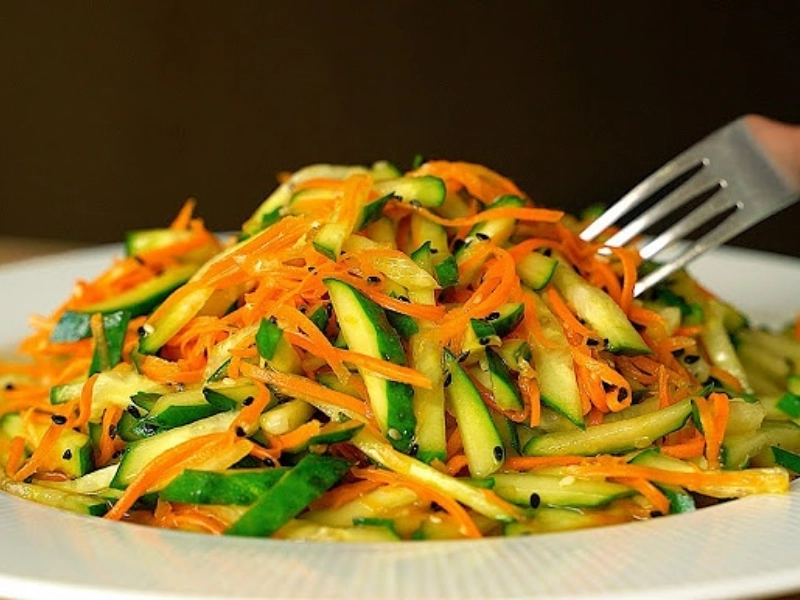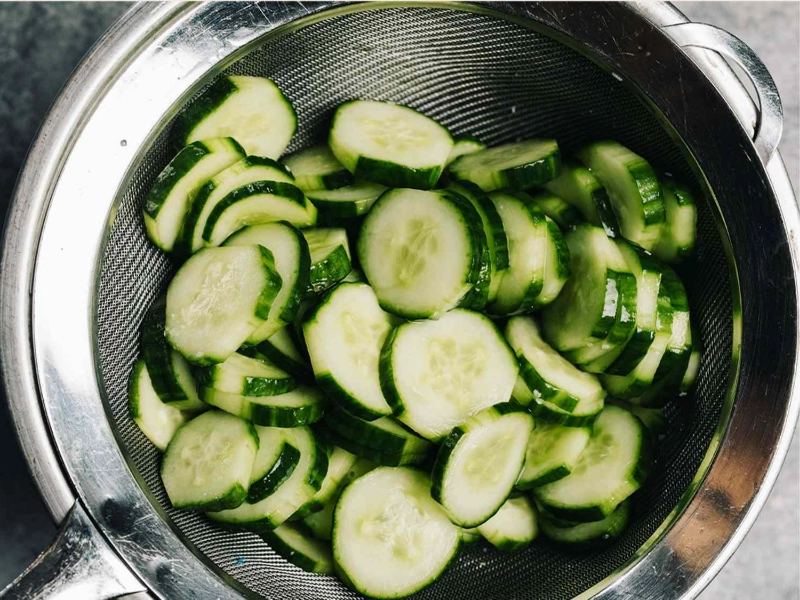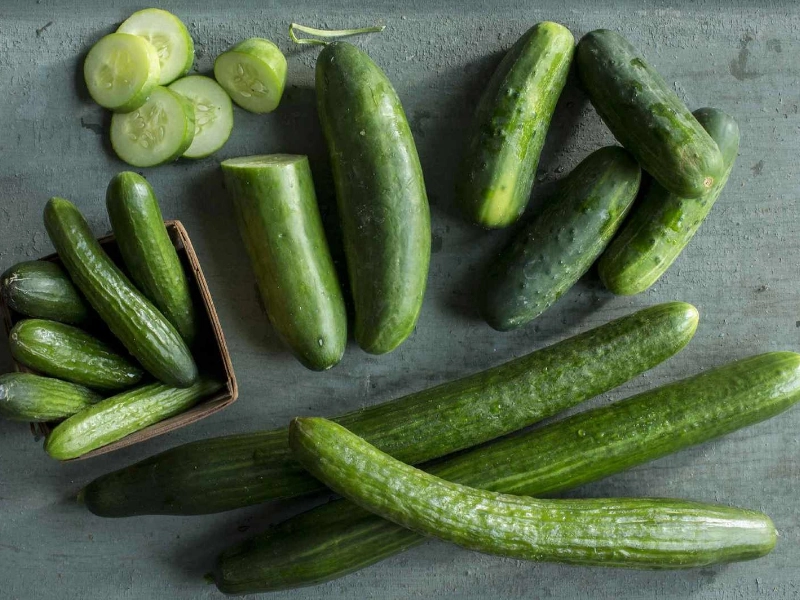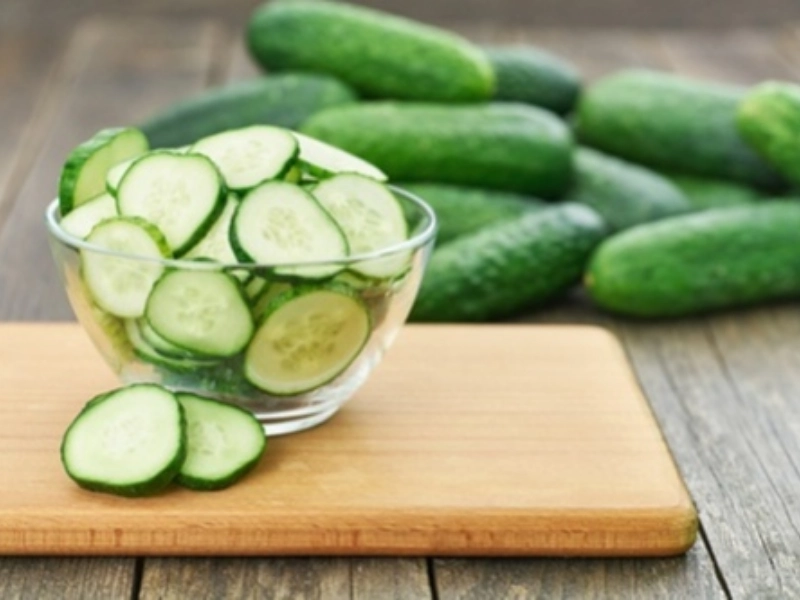Advertisement
Cucumbers are a mainstay in salads and also serve as the base for delicate Victorian sandwiches at tea parties and as a refreshing garnish for mocktails and other summery drinks. What's more, a 2020 study found that they're rich in antioxidants and minerals, including a substance called cucurbitacin, which may improve fat metabolism in rats. According to Iu, cucumbers hydrate you at the cellular level, providing a fountain of youth effect. They also contain an abundance of fiber and antioxidants.
Reich an Vitamin C

Advertisement
Vitamin C, which is abundant in cucumbers, helps prevent fatty liver disease. These include iron, magnesium and potassium, among other essential vitamins and minerals. They are an easy, low-calorie meal to include in your diet. You can eat cucumbers fresh or add them to salads. They can also be used to make a cool drink with cucumbers. The cooling properties of cucumbers help reduce bloating. This is the result of their ability to reduce body temperature and eliminate harmful substances. They are also known to possess antioxidant properties. This is made possible by the presence of natural plant flavonoids, carotenoids (lutein and zeaxanthin) and micronutrients such as vitamin C.In addition, they are an excellent source of potassium, which is necessary for healthy kidney function. They may also be beneficial for people who are overweight or have high blood pressure due to their modest diuretic properties. In addition, soluble fiber - which is crucial for maintaining a healthy weight and warding off diabetes - is abundant in cucumbers.
Minimal in calories

Because they are low in calories, cucumbers are a great addition to a diet that is good for the liver. Cucumbers have several health benefits; you can drink them fresh or juice them. Vitamin C, potassium, calcium, fiber, phosphorus, iron and magnesium are all found in abundance in cucumber juice. It also facilitates better bowel movements and the removal of toxins. Soluble fiber, another component of the cucumber diet, can reduce high blood pressure. Cucumbers contain a plant chemical called cucumber, which is gaining popularity due to its potential to fight cancer cells. Studies show that it has the ability to stop cancer growth and protect cells from damage.Most people can safely eat cucumbers and drink cucumber juice, but if you are using warfarin or other medications that affect blood clotting, you should avoid cucumbers. It is also recommended to consume them in moderation if you have diabetes. Since cucumbers are a good source of carbohydrates, you should be careful about how much of them you eat.
Increased potassium concentration

Potassium, which is abundant in cucumbers, is essential for maintaining the body's regular metabolic processes. Adequate potassium intake is crucial because low levels are associated with non-alcoholic fatty liver disease. Cucurbitacin is a plant chemical in cucumbers that may provide protection against the formation of fatty liver through its ability to regulate blood sugar. Soluble fiber, vitamin C, and magnesium are additional elements in cucumbers that help regulate blood sugar.Cucumber peels are rich in provitamin A, which your body can process to produce vitamin A, an antioxidant that promotes healthy cell growth and reduces inflammation. Additionally, they contain flavonols like fisetin, which research suggests may reduce the risk of Alzheimer's and improve cognition. Cucumber tastes best when eaten raw, in salads, or in juice. Because they're hydrating, cucumbers can replace high-calorie drinks. Just be careful not to add unhealthy dressings or other ingredients that can make you eat more calories.
Lots of fibers

Fiber, which is abundant in cucumbers, lowers cholesterol levels. In addition, it contains vital minerals such as magnesium and potassium that support healthy blood pressure regulation. In addition, it reduces bloating, which is a common problem for those who have fatty liver disease. The naturally occurring plant component cucurbitacin B has been shown to have anti-carcinogenic and anti-tumor growth abilities. It is an organic antioxidant that can help in the fight against prostate, lung and breast cancer. It is also recognized to reduce the risk of hepatitis.Cucumber consumption has been shown in studies to improve lipid metabolism in non-alcoholic fatty liver disease (NAFLD). This is due to the presence of lignans such as secoisolariciresinol, lariciresinol and pinoresinol. Both the severity of NAFLD and the fatty acid content of the liver can be reduced by these lignans. It has demonstrated effective anticancer properties in animal models of the gastrointestinal tract and hepatocellular carcinoma. This is a compelling argument to increase your cucumber intake, especially if you have fatty liver disease.



